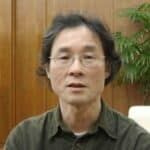Nuclear or not? The complex and uncertain politics of Japan’s post-Fukushima energy policy
By Masafumi Takubo | September 1, 2011
In the wake of the Fukushima disaster, Japanese Prime Minister Naoto Kan announced that Japan should meet its energy needs without nuclear power plants. But his statement may have little relevance in the next administration. There is a complex power struggle underway over the future of nuclear energy in Japan involving political, governmental, industry, and union groups. Despite the seriousness of the Fukushima crisis, Japan’s historical commitment to nuclear power—and a fuel cycle that includes reprocessing and breeder reactors—still has powerful supporters. Even with a scale-down of nuclear power, there is a possibility that the policy of reprocessing spent nuclear fuel will continue as a matter of political inertia.
Together, we make the world safer.
The Bulletin elevates expert voices above the noise. But as an independent nonprofit organization, our operations depend on the support of readers like you. Help us continue to deliver quality journalism that holds leaders accountable. Your support of our work at any level is important. In return, we promise our coverage will be understandable, influential, vigilant, solution-oriented, and fair-minded. Together we can make a difference.
Issue: Bulletin of the Atomic Scientists Volume 67 Issue 5
Keywords: Fukushima, Monju, Naoto Kan, Rokkasho, fast breeder reactor, nuclear fuel cycle, spent fuel reprocessing
Topics: Uncategorized














